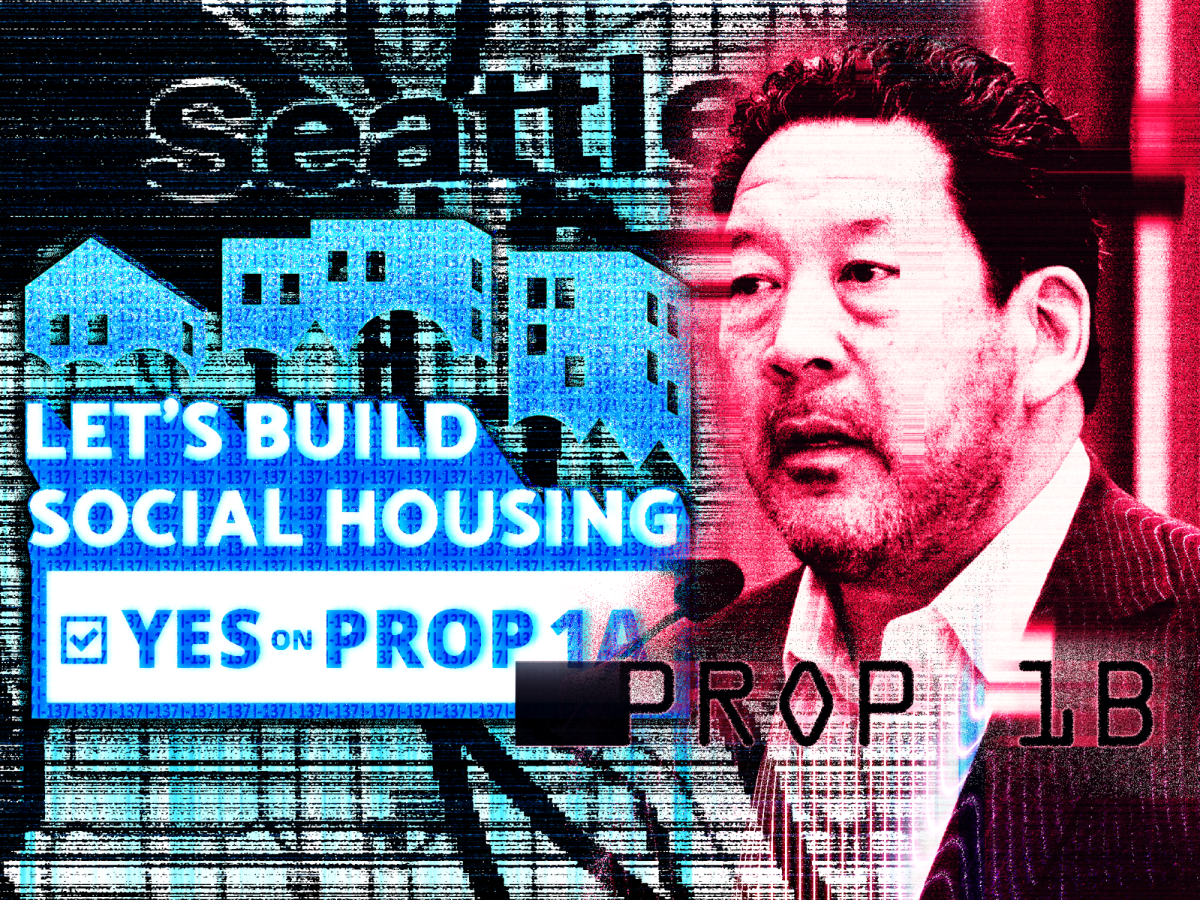King County residents voted Feb. 11 on a key affordable housing measure. The measures that were on the ballot, Proposition 1A and 1B were proposals set out to benefit the Seattle Social Housing Developer (SSHD). Proposition 1A won with 58.24% of the vote over 1B. Both propositions are focused on creating affordable housing in Seattle. The major difference is where the money comes from.
Proposition 1A focuses on taxing the wealthiest in Seattle through a system known as an excess compensation payroll tax. This would tax employers for all employees who are making over $1 million per year. For every dollar made after $1 million, the employer will pay a 5% tax. All that allocated money will head to the social housing developer to build affordable housing. The taxed funds will total over $52 million dollars per year for the foreseeable future.
Proposition 1B reallocates funds from a pool of money known as the payroll expense tax revenue. This is money that already exists from business taxes throughout Seattle. It would allocate $10 million for the next five years to support the SSHD.
Jeff Paul, a public school teacher and board member of the House Our Neighbors organization believes that Proposition 1B steers away from taxing the wealthy corporations.
“This is why the Housing Development Consortium, which is the largest organization where those low income housing providers come together in one coalition. They’re adamantly opposed to 1B and they support one because we already don’t have enough funds for low income housing providers,” Paul said. “Why would social housing want to steal money from them when we could get money from wealthy corporations instead? The second thing I would say is that we have a serious problem for housing affordability for all kinds of people.”
Proposition 1B is being backed by wealthy corporations like Amazon and Microsoft. Both companies donated over $100,000 to Proposition 1B. Metropolitan Seattle Chamber of Commerce CEO Rachel Smith argues that 1B directs public money to the proper place.
“Proposition 1B focuses the use of public money on helping lower-income people, which is where it should go. Every study in the region has concluded that we need to focus public housing dollars toward lower-income individuals, and we agree,” Smith said. “The Seattle Social Housing Developer is not ready for primetime. It has one single staff person, has seen board member turnover, made virtually no information available to the public, and there is no plan for how this organization is going to spend $50 million a year, every single year, forever, starting in 365 days.”
The SSHD has received backlash for their lack of experience and track record with building a successful housing program, with some questioning the funding of $52 million for a new organization.
Paul objects to arguments against allocating funds to the SSHD.“I think that that’s a disingenuous argument. Personally, if you follow that argument to its logical conclusions, then we can never start new things. We only can keep on working with the tools that we have. We can create new ways of addressing problems,” Paul said.
The Social Housing Organization is led by CEO Roberto Jiménez. Jiménez was appointed the CEO in 2024 given his track record with building affordable housing in California and Oregon. Paul believes the argument made against the group is part of the same idealism that has occurred in the White House.
“We saw what happened at the national election. Jeff Bezos was literally up there standing behind Trump. These are the people who fell out with all of us to keep making more money and to have access to power, and they want to do the same thing here,” Paul said. This coalition has the largest grassroots coalition around housing, progressives, working people, people who are just trying to make things better for the people of Seattle on one side, and big tech, big corporations on the other. That’s what is happening. We’re fighting for the soul of the city.”
King County voted for the ballot Feb. 11. Voters had options of yes and no for either proposition, and then the decision to vote for either proposition regardless of whether they thought it should be enacted or not.
Retired Journalist and Volunteer with the No committee George Howland Jr., is opposing both proposals and the lack of focus on the homelessness crisis in Seattle.
“I say that the model of building housing and providing shelter for homeless people is not broken, it’s just really expensive, and we need that money for the poorest of the poor, for those who are suffering the most. And it just breaks my heart to think of us moving off in another direction and leaving them behind,” Howland Jr. said.
Voters have decided that for now, 1A is the way. The results of the special ballot will no doubt be a key factor in determining the future of affordable housing in the Seattle area.








